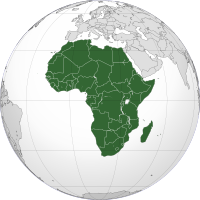
#economist.com. Israeli strikes on Beirut and Tehran could intensify a regional war. At the very least, they will delay talks over a ceasefire in Gaza
#Jul.31.2024 ×

#economist.com. Israeli retaliation in Lebanon seems inevitable. But it still wants to avoid all-out war against Hizbullah
#Jul.28.2024 ×

#economist.com. Rwandan soldiers may outnumber M23 rebels in Congo. The prospect of dislodging the rebels is becoming dimmer
#Jul.25.2024 ×

#economist.com. Bibi Netanyahu offered spectacle over substance in America. His fourth address to Congress was historic, but held few answers for Israelis
#Jul.25.2024 ×

#economist.com. Israel and the Houthis trade bombs and bluster. For now, though, neither side is a strategic threat to the other
#Jul.25.2024 ×

#economist.com. Why the AI revolution is leaving Africa behind. Large infrastructure gaps are creating a new digital divide
#Jul.25.2024 ×

#economist.com. The world court says Israel’s occupation is illegal. But will the International Court of Justice’s ruling have any effect?
#Jul.19.2024 ×

#economist.com. The far right has captured Israel’s police. Binyamin Netanyahu’s coalition partner is eroding the force’s independence
#Jul.18.2024 ×

#economist.com. Africa’s surprising new age of rail. Sino-American tensions are playing out on the tracks
#Jul.18.2024 ×

#economist.com. To see the future of urban warfare, look at Gaza. Western armies are studying the horrifying conflict for tactical lessons
#Jul.18.2024 ×

#reutersagency.com. Traders face $1 bln loss on faltering Ghana cocoa supply | Reuters News Agency. Reuters exclusively reported that trading houses face losses of at least $1 billion on cocoa derivatives after major producer Ghana failed to deliver
#Jul.15.2024 ×

#economist.com. Israel bombs the Hamas military mastermind behind the October 7th attack. If he is dead it could hasten the end of the Gaza war
#Jul.13.2024 ×

#economist.com. Why food is piling up on the edge of Gaza. Thousands of tonnes of food and medicine are still waiting to get in
#Jul.11.2024 ×

#economist.com. Iran’s new hope: a cardiologist president. He is said to detest the capital, Tehran. Can he master its politics?
#Jul.11.2024 ×

#economist.com. Jordan’s Islamists have been boosted by the war in Gaza. The king is caught between his country’s peace with Israel and his angry people
#Jul.11.2024 ×

#economist.com. Soaring food-price inflation is hurting Nigeria’s poor. Conflict, a weakening currency and government blunders are all to blame
#Jul.11.2024 ×

#economist.com. Kenya’s deadly Gen-Z protests could change the country. Almost 40 people have died in violence
#Jul.09.2024 ×

#economist.com. A reformer wanting a nuclear deal with America wins Iran’s election. Voters turned their backs on hardliners for Masoud Pezeshkian, a reformist candidate
#Jul.06.2024 ×

#economist.com. How EU do-goodery risks harming Africa’s small farmers. New forest-mapping rules may shut African crops out of European markets
#Jul.04.2024 ×

#economist.com. The next terrifying war: Israel v Hizbullah. It would feature kamikaze drones, mass blackouts and the largest missile barrage in history
#Jul.02.2024 ×

#economist.com. Meet the victors in Africa’s coup belt. They are militaristic, nationalistic and keen to cut a deal
#Jul.02.2024 ×

#wikipedia.org. Africa. Africa is the world's second-largest and second-most populous continent after Asia. At about 30.3 million km2 (11.7 million square miles) including adjacent islands, it covers 20% of Earth's land area and 6% of its total surface area. With nearly 1.4 billion people as of 2021, it accounts for about 18% of the world's human population. Africa's popul
#Dec.31.2999 ×
Filter: #Jul.31.2024 ×
Showing 1-22 of 22 items - Time: 0.1526 s. Memory: 14.785 mb.